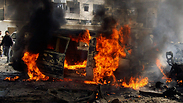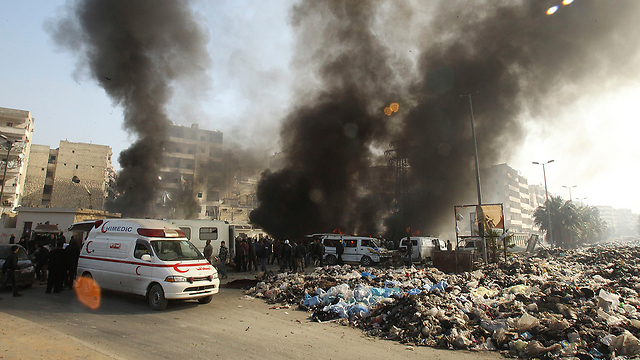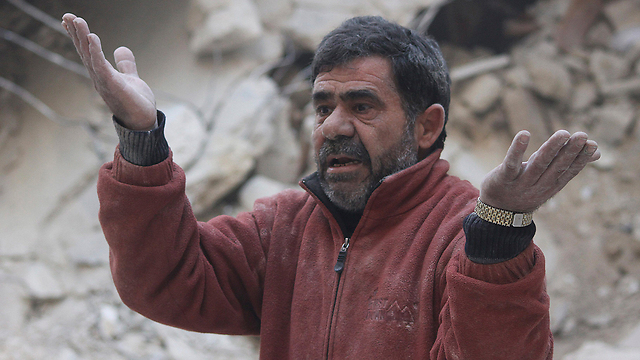
Syrian peace talks set to start in Switzerland
Rebel opposition in war-torn mideast country takes last minute vote to attend Geneva II talks
The Syrian National Coalition (SNC), the official Syrian opposition, had said it would pull out of the talks if Iran was there. Ban’s move means the talks can proceed as planned although many had doubts they would succeed in finding a way to end the war.
Encouraged to come to the talks or face a withdrawal of support from the United Kingdom and the United States, the Syrian National Coalition (SNC) were left with little choice but to reverse a fundamental part of their constitution that bans talks to with the Syrian regime.
Related stories:
- Snubbed Iran doubts success of Syria peace talks
- Op-ed: Geneva II Conference doomed to failure
- Syrian opposition issues ultimatum on peace talks
UK Foreign Secretary William Hague said he 'welcomed' the decision of the SNC and expressed his support for the aims of the SNC, to force Syrian President Bashar Assad to step down and to ensure a transitional government is installed in Syria
“The UN Secretary General has made clear that the aim of the talks is to agree a political transition and an end to the conflict,” Hague said. “In contrast to the National Coalition, the Syrian regime has still not agreed to this aim. As I have said many times, any mutually agreed settlement means that Assad can play no role in Syria’s future.”
The decision by the SNC to attend the talks is likely to drive a final wedge between them and the main fighting groups within the rebel forces. Yet after the Syrian government agreed to attend the talks there was little chance the opposition could ask to postpone them without losing face with the international community.
Members of the rebel forces had reportedly given their support to the SNC's decision to attend the talks, before denying it after the result of the vote was announced.
The inclusion of Iran was controversial as Tehran is providing military support to the government of Assad and Iran has not agreed to the idea of a transitional government. The SNC's attendance is contingent on transition being the primary point for negotiations.
If they take place, the much anticipated talks will mark the first time the government and the opposition have sat down to negotiations since 2011.
For many inside Syria, the talks represent a much-needed opportunity for peace after nearly three years of bloodshed.
“I think they should come with a political solution no matter how much it costs,” An activist from Aleppo, who was part of the initial uprising and protest against the regime told the Media Line. “I will be happy to see peace again in Syria, even if Assad and his regime stays.”
The last minute disputes over who will sit down at the negotiating table comes as no surprise to many major players in the conflict, few of whom have much hope that the talks will result in tangible agreements.
The Syrian government has expressed its willingness to discuss a ceasefire agreement in Aleppo, a city in the north of the country. Additionally, a small quantity of food aid has been allowed into the besieged Yarmouk camp in the suburbs of Damascus as an act of goodwill.
Yet the UN were quick to clarify that the convoy which made it into Yarmouk was insubstantial in real terms. The United Nations Palestinian Refugee Works Agency spokesman, Christopher Gunnes told the Media Line, “The 200 food parcels which were delivered to Yarmouk today would provide 33% of the caloric requirements of 1,000 people for one month.”
Meanwhile, rebel forces are locked in fierce infighting. On one side is the Islamic State of Iraq and al-Sham and other extremist Islamist groups who seek to create an Islamic state across Iraq and Syria.
They are facing off against the Islamic Front, which is a coalition of Islamist rebel groups, and other more moderate groups who believe the ISIS fighters are brutal and unrepresentative.
Article written by Jane Burgess
Reprinted with permission from The Media Line












